Europe
Europe is described here in a geographical sense. It is not limited to the European Union, and includes, for example, the United Kingdom and the Balkans. It remains central to international relations.
Related Subjects

Opening up the G7 to South Korea to Address Contemporary Global Challenges

The G7’s global influence has diminished as powers like China reshape international governance through initiatives such as BRICS and the Shanghai Cooperation Organisation (SCO). With the G7 now representing just 10 per cent of the world’s population and 28 per cent of global GDP, its relevance is increasingly questioned.
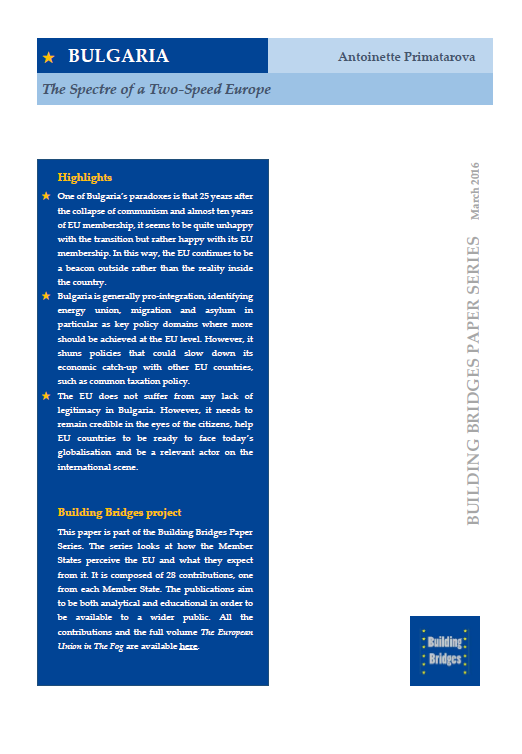
Bulgaria: The Spectre of a Two-Speed Europe
One of Bulgaria’s paradoxes is that 25 years after the collapse of communism and almost ten years of EU membership, it seems to be quite unhappy with the transition but rather happy with its EU membership. In this way, the EU continues to be a beacon outside rather than the reality inside the country.
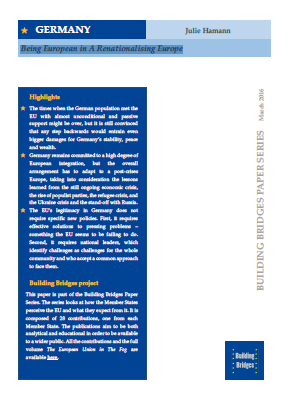
Germany: Being European in a Renationalising Europe
The times when the German population met the EU with almost unconditional and passive support might be over, but it is still convinced that any step backwards would entrain even bigger damages for Germany’s stability, peace and wealth.
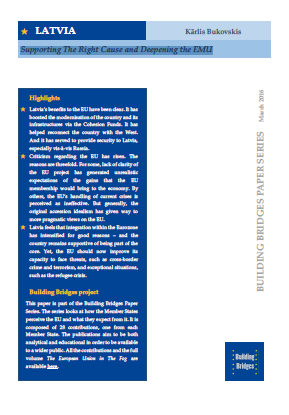
Latvia: Supporting the Right Cause and Deepening the Economic and Monetary Union
Latvia’s benefits to the EU have been clear. It has boosted the modernisation of the country and its infrastructures via the Cohesion Funds. It has helped reconnect the country with the West. And it has served to provide security to Latvia, especially vis-à-vis Russia.
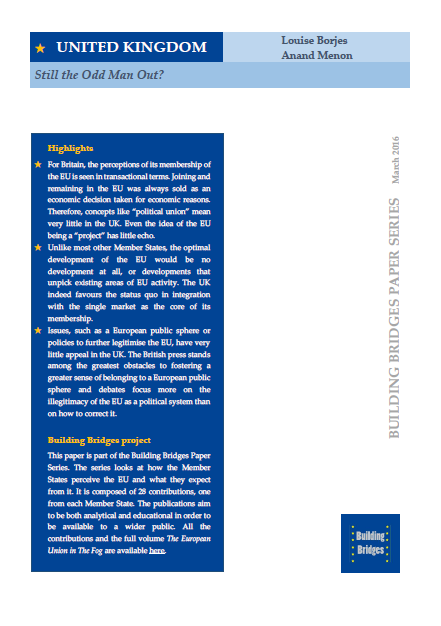
United Kingdom: Still the Odd Man Out?
For Britain, the perceptions of its membership of the EU is seen in transactional terms. Joining and remaining in the EU was always sold as an economic decision taken for economic reasons. Therefore, concepts like “political union” mean very little in the UK. Even the idea of the EU being a “project” has little echo.
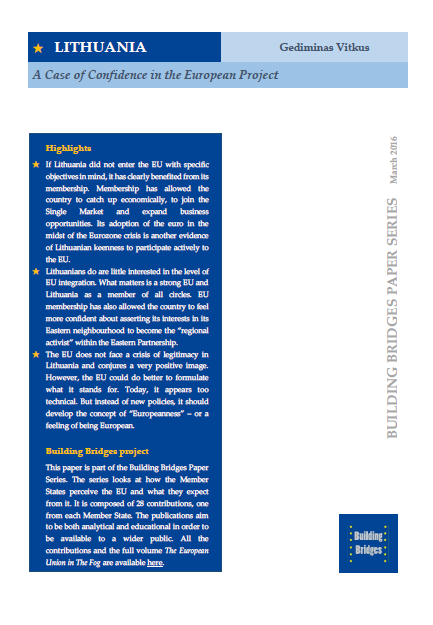
Lithuania: A Case of Confidence in the European Project
If Lithuania did not enter the EU with specific objectives in mind, it has clearly benefited from its membership. Membership has allowed the country to catch up economically, to join the Single Market and expand business opportunities. Its adoption of the euro in the midst of the Eurozone crisis is another evidence of Lithuanian keenness to participate actively to the EU.
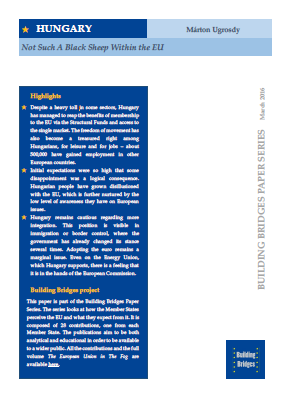
Hungary: Not Such a Black Sheep Within the EU
Despite a heavy toll in some sectors, Hungary has managed to reap the benefits of membership to the EU via the Structural Funds and access to the single market. The freedom of movement has also become a treasured right among Hungarians, for leisure and for jobs – about 500,000 have gained employment in other European countries.
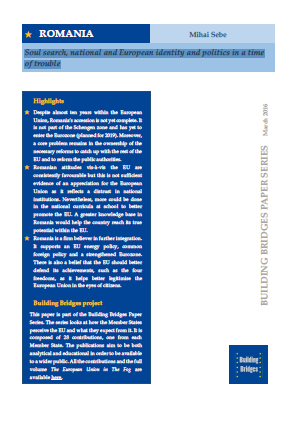
Romania: Soul Search, National and European Identity and Politics in a Time of Trouble
Despite almost ten years within the European Union, Romania’s accession is not yet complete. It is not part of the Schengen zone and has yet to enter the Eurozone (planned for 2019). Moreover, a core problem remains in the ownership of the necessary reforms to catch up with the rest of the EU and to reform the public authorities.
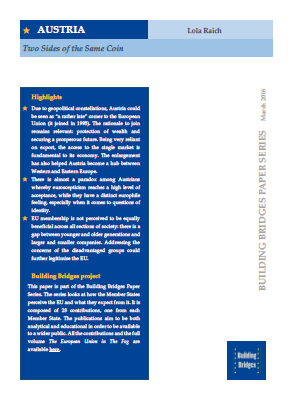
Austria: Two Sides of the Same Coin
Due to geopolitical constellations, Austria could be seen as “a rather late” comer to the European Union (it joined in 1995). The rationale to join remains relevant: protection of wealth and securing a prosperous future. Being very reliant on export, the access to the single market is fundamental to its economy. The enlargement has also helped Austria become a hub between Western and Eastern Europe.

The European Union in the Fog, Introduction.
The Building Bridges project looks at the national perspectives on the European Union. This publication gathers contributions from across the EU. It sheds light on Member States’ motivations to participate in the EU and views on its future. Accessible and analytical, this volume is an ideal reference guide for practitioners, experts, students and European citizens.
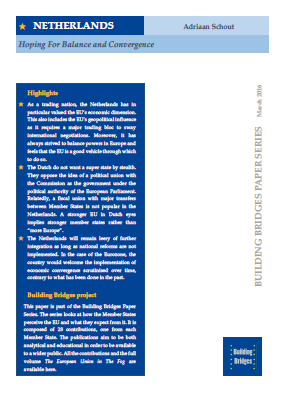
Netherlands: Hoping For Balance and Convergence
As a trading nation, the Netherlands has in particular valued the EU’s economic dimension. This also includes the EU’s geopolitical influence as it requires a major trading bloc to sway international negotiations. Moreover, it has always strived to balance powers in Europe and feels that the EU is a good vehicle through which to do so.
Support independent French research
Ifri, a foundation recognized as being of public utility, relies largely on private donors – companies and individuals – to guarantee its sustainability and intellectual independence. Through their funding, donors help maintain the Institute's position among the world's leading think tanks. By benefiting from an internationally recognized network and expertise, donors refine their understanding of geopolitical risk and its consequences on global politics and the economy. In 2025, Ifri supports more than 80 French and foreign companies and organizations.








